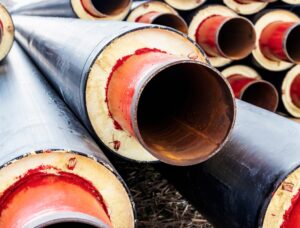Polyurethane Foam: A Versatile Solution for Insulation
Polyurethane foam (PU foam) stands out as a versatile and widely used material renowned for its exceptional insulation and cushioning properties. As a polymer, PU foam is created in the presence of suitable catalysts and additives. This process results in a material that can be either rigid or flexible, depending on its specific formulation and intended application. The adaptability of PU foam makes it a critical component in a wide array of industries, from construction to automotive, where its unique properties offer significant benefits.
Polyurethane (PU) foam possesses unique properties that make it functional and widely used across multiple applications. PU fam is a good thermal insulator, lightweight, resistant to most of the chemicals and durable.
PU foam is highly regarded for its thermal insulation capabilities. Its low thermal conductivity makes it an essential material for insulating buildings, refrigeration systems, and HVAC systems, where maintaining temperature control is critical.
Not only that, but PU foam is also lightweight, making them easy to transport, handle, and install. This property is particularly advantageous in construction and manufacturing, where reducing overall weight is often a priority.
PU foam is resistant to a wide range of chemicals, including oils and solvents. This resistance makes it suitable for various industrial applications where exposure to harsh substances is common.
PU foam is long-lasting, with good resistance to environmental factors such as moisture, temperature fluctuations, and UV radiation. Its durability ensures that products made from PU foam maintain their performance over time.

One of the critical applications of polyurethane foam is in chilled water pipe systems, where its excellent thermal insulation properties are leveraged to maintain system efficiency and prevent potential damage.
Chilled water systems are essential in air conditioning process whereby water is circulated at low temperatures to absorb heat from spaces or equipment. Insulating these pipes helps minimize the heat gain, prevent condensation and improve energy efficiency.
Insulation prevents heat from the surrounding environment from warming the chilled water in steel pipe and increase energy consumption. Without proper insulation, the cold surface of the pipes would attract moisture from the air, leading to condensation. This can cause water damage, corrosion, and mold growth, all of which can compromise the integrity of the system. By reducing heat gain, the system doesn’t need to work as hard to maintain the desired temperature, saving energy and operational costs. This can improve overall system energy efficiency.
To ensure long-term durability, PU foam is often covered with a protective jacket or coating, such as aluminium cladding or a weather-resistant plastic layer. This protective layer shields the foam from UV light and physical damage, further extending its lifespan.
Polyurethane foam is a highly effective and widely used material that plays a crucial role in a variety of applications, from building insulation to cushioning in furniture and automotive seats. Its properties, such as thermal insulation, lightweight, and durability, make it an ideal choice for many industries. In chilled water systems, PU foam’s ability to prevent heat gain and condensation, coupled with its ease of application and long-term reliability, underscores its importance as an insulation material. As industries continue to seek energy-efficient and durable solutions, polyurethane foam remains a versatile and indispensable material.
Megajana always used the best material to deliver the best service practice to our customer. Contact us here to know more about our service!